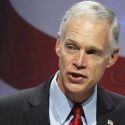FBI Director James Comey has so much power now, J. Edgar Hoover would be jealous
Michael Goodwin,
Each day, FBI Director Jim Comey goes to work in a federal building named for his most famous predecessor. Yet for all his storied accomplishments and sordid controversies, J. Edgar Hoover never matched the singular feat of Comey.
Only Comey simultaneously investigated the top two presidential candidates during an election. Hillary Clinton and Donald Trump each battled Comey last year while they battled each other for the Oval Office.
How’s that for power?
Neither case led to charges, but that’s almost beside the point. Echoing Hoover’s attitude, if not his methods, Comey is adept at using innuendo and leaks to remind the powerful that he cannot be ignored. The prerogative to investigate, and the willingness to feed a scandal-hungry media, is close to being God in politics, and Comey plays the role with relish.
We are witnessing a prime example. Not long after President Trump claimed that former President Barack Obama “had my ‘wires tapped’ in Trump Tower,” anti-Trump media outlets got a scoop: Comey was demanding a Justice Department statement declaring Trump’s charge false.
Naturally, the scoops carried only anonymous attribution. Experience tells me that Comey himself or someone acting on his behalf alerted the media.

Either way, the point is the same. Comey was asserting his unique power to rebuke the president of the United States. A Justice Department statement never came, but no matter. Comey made his feelings known and paid no price for it.
Other leaks followed. We are told Comey was “incredulous” at Trump’s claim and wanted the FBI cleared of the suggestion it broke the law. Another “source” was quoted as saying that Comey felt that “institutionally, he has to push back on this.”
The episode was classic Comey. Once regarded as an independent straight shooter, his career increasingly resembles the end of Hoover’s. Comey’s aggressive self-righteousness makes him bigger than the institution he leads and everybody in Washington knows that crossing him can be dangerous to your career.
Hillary Clinton’s team blamed him (and just about everybody else) for costing her the election. Whatever the merits, his probe of her handling of classified material was marked by numerous damaging leaks and then a crass assumption of others’ authority.
After Attorney General Loretta Lynch recused herself from the case because of her private meeting with Bill Clinton, Comey made the highly unusual move of calling a press conference to recommend that no charges be filed, saying “no reasonable prosecutor” would take the case. That was highly debatable, but his timing was politically convenient: It came just hours before Clinton joined Obama on Air Force One for their first joint campaign appearance.
Yet Comey wasn’t done making news: He called Clinton “extremely careless” and said she lied to the public repeatedly. Later, he reopened the investigation over Anthony Weiner’s emails, then promptly closed it before the election.
Trump is now getting similar treatment. Some days Comey gives, and some days he takes. Whatever we know about investigations into whether Trump’s campaign collaborated with Russia during the election is only because of leaks, many of which appear to come from the FBI.
The initial hysteria, fueled by screaming headlines that “Russia hacked the election,” has died down, but we still have no clear idea who did what, or whether anybody on the Trump team did anything wrong.
Meanwhile, a new Cold War with Russia is starting, and the leaks keep coming. Comey, the highest-ranking holdover from the Obama administration, has not stopped them.
Recall that it was the Justice Department, not the CIA, that gave the White House a transcript of Lt. Gen. Michael Flynn’s December call with the Russian ambassador. It showed that Flynn, despite denials, had discussed recent sanctions imposed by Obama.
Days later, with Trump having taken no action, the transcript was leaked to the media and Flynn was fired. Reports surfaced saying agents were concerned that Flynn could be blackmailed, so they leaked the contents of their wiretapping.
Hoover would admire such bold assertion of power.
During his rise, Comey has curried favor with Democrats by goring Republicans, then switching sides, then switching sides again. The only consistency is that those who trust him end up disappointed.
Now he’s Trump’s problem, thanks to the public break with the president. Although Comey’s 10-year term doesn’t end until 2023, the president could fire him for cause, or simply ask him to resign.
An outright firing would invite comparisons to Richard Nixon’s Saturday Night Massacre during Watergate.
Another option is for Trump to publicly demand that Comey turn over everything he has to congressional committees that pledged to investigate Trump’s charge that Obama bugged his campaign. Comey would probably refuse, which could create an even more dramatic showdown with Trump.
Before he does anything, Trump might consider how past presidents handled Hoover. He served under six, and nearly all thought about firing him, but he was too big and there was concern he would empty his files of dirty secrets. Harry Truman likened his methods to the secret police and accused him of blackmail, but didn’t dare sack him. Even the media feared Hoover.
Nixon had secretly confessed he was afraid to fire him, but Hoover spared him the trouble by dying in office, in 1972. Nixon named the new FBI building after him.
In death, Hoover is widely reviled because he is harmless. Let’s not make the same mistake with Comey.





